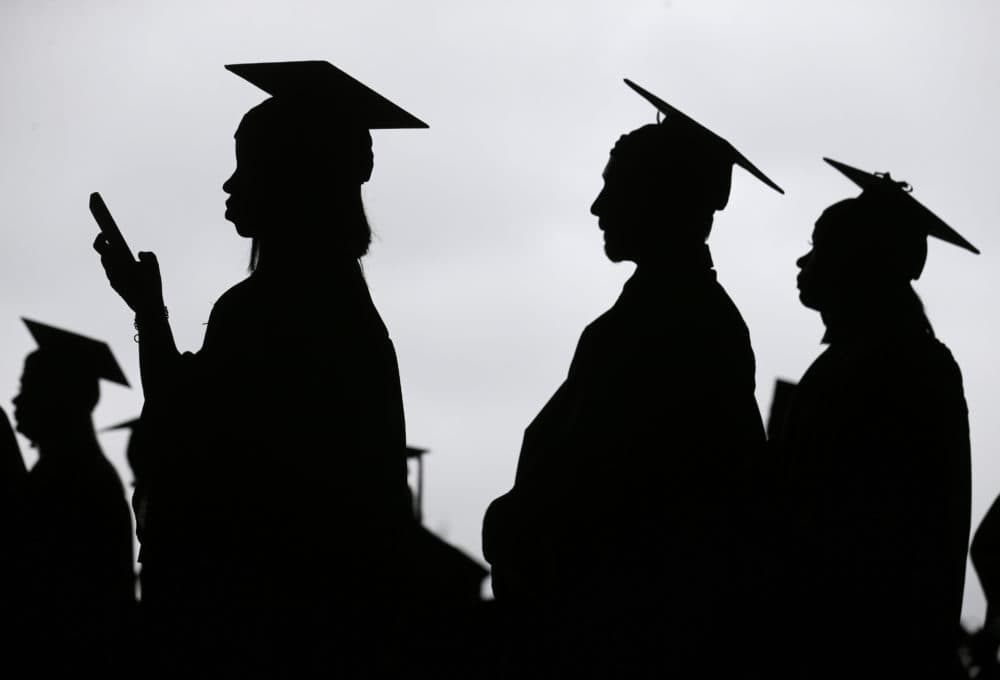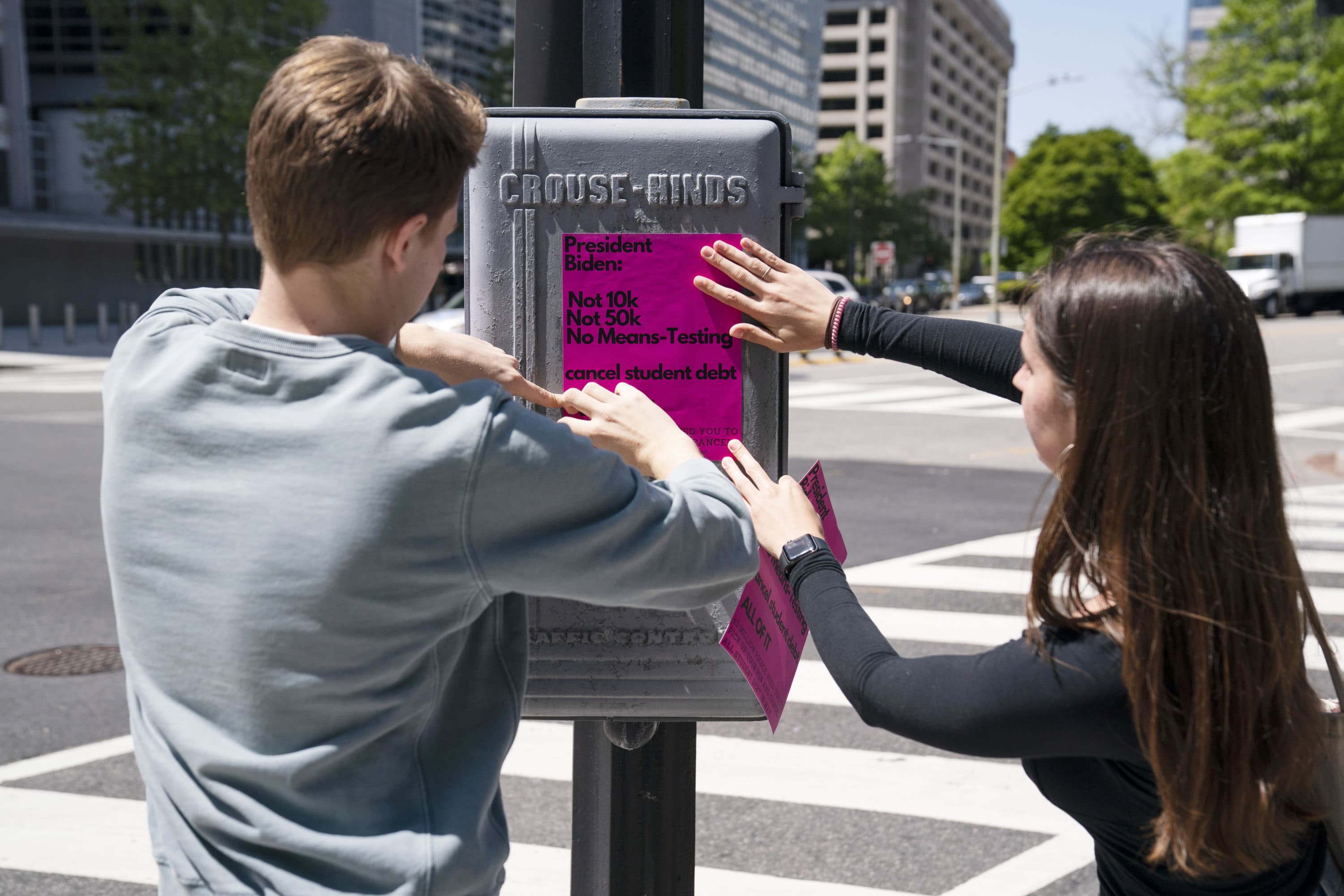Advertisement
Commentary
Let's forgive student debt, but only for the hardest-luck borrowers

Given the mental and moral senility of the Trump-kowtowing right, the best dam against the left’s river of profligacy in pursuit of paradise is built these days by smart progressives. Case in point: Nobel laureate economist Paul Krugman and his take on the Sanders/Ocasio-Cortez/Yang mantra of Everything For All: Medicare For All, Student Debt Relief For All, Universal Basic Income.
Should we limit government aid to those in need only? Krugman’s answer will anguish psyches that require black-and-white certainty: “It depends.” Applying a means test to, say, the fine idea of free public college tuition would indeed be lunacy, he argues; the cost in added bureaucracy would dwarf any savings to taxpayers. (Someone must double-check students’ claims of poverty.) But in the case of Andrew Yang’s universal basic income, Krugman notes that “universal” translates into prohibitively expensive. Done right — and it can be — the UBI would have to lose the U, targeting the needy only.
This nuance should inflect the current debate over whose college loans to forgive, and how much. (As usual, I speak for myself, not Boston University, my employer.) More than 45 million Americans are on the hook for $1.6 trillion in federal loans. A pandemic pause on payments expires Sept. 1. After that? President Biden is mulling a plan to whack $10,000 of student debt from individuals earning less than $150,000, and married couples filing jointly making less than $300,000. But he’s taking left-flank flak for not forgiving multiples more. Bernie Sanders wants Biden to vaporize all $1.6 trillion with a stroke of his presidential pen. All For All.
Biden should plug his ears to such pleas.

His $10,000 forgiveness would unburden most of the hardest-luck borrowers: the poor and those who dropped out of college, saddled with loans while deprived of higher ed’s lifetime income premium. Forgiving $10,000, with the income restrictions Biden’s reportedly considering, would cost the feds $230 billion.
The plan Biden’s considering could cost just one-seventh of Sanders’s debt wipeout, and one-third of Elizabeth Warren’s means-tested but still expansive plan from her presidential campaign.
The Roosevelt Institute tries to smear intellectual polish on the go-big-on-forgiveness brass by urging that we focus on students’ wealth as opposed to their income. This allegedly makes vast forgiveness progressive, since “people from wealthy backgrounds (and their parents) rarely use student loans to pay for college.” The more sensible Brookings Institute counters that universal forgiveness is regressive even if the metric is wealth: Big spenders exclude from their wealth calculations “the very asset the person borrowed to buy — an education that increases lifetime earnings. That’s like assessing a homeowner’s wealth by counting their mortgage balance but not the value of their home.”
Advertisement
Measured realistically, Brookings says, the wealthiest 20% of households bear almost one-third of all student debt. The poorest 20% of households hold just 8%. Indeed, the pursuit of five degrees accounts for most debt: MBA, J.D., M.D., B.A. in business, and B.S. in nursing. Few with these credentials clip coupons.
[Biden's] $10,000 forgiveness would unburden most of the hardest-luck borrowers: the poor and those who dropped out of college ...
Ah, says Roosevelt’s indefatigable analysts, but middle-class and high-income Black households in particular “have sought social mobility through higher education and seen income returns — but continue to be weighed down by debt. Student debt cancellation could be considered a form of racial reparations ...” Biden’s campaign pledge would target the neediest among Black borrowers. And there are more, smarter ways to redress the racial wealth gap.
One would be that free-tuition idea, since “Black Americans are much less likely to have the opportunity to go to college in the first place,” Brookings notes. Another would be improving existing, income-based repayment programs for student loans and reversing the Trump Administration’s unholy alliance with predatory, for-profit colleges. Biden is moving on both fronts. Last week, his Education Department said it would cancel federal debts for 560,000 former students of Corinthian Colleges, a defunct, for-profit chain that Uncle Sam found had committed fraud.
Oh, and improving kindergarten-through-12th-grade education and the safety net wouldn’t hurt, either.
For the record, Krugman supports “going as big as political realities allow” on forgiveness. But with this caveat: “I understand that too generous a debt write-off might produce a backlash.” “Might” is putting it mildly, considering that the politically tone-deaf are encouraging mass withholding of student loan payments. Confirming activists’ incompetence at analogy, they compare such a protest to impoverished tenants’ rent strikes throughout our history.
Seriously? Any student debt protest would include the privileged in pinstripes and medical coats. Their whining about penury would summon not visions of rent strikes but outrage, among three constituencies at least, including the 34 million Americans who scraped and scrounged and managed to pay off their college loans and the millions whose disadvantage precluded college and its income premium.
Finally, their complaints would irk those of us who heed Krugman and another smart progressive, the late Mario Cuomo. Sometimes, giving help to people who don’t need it is, the New York governor observed, “stupidity. The criterion of real fairness is need.”
